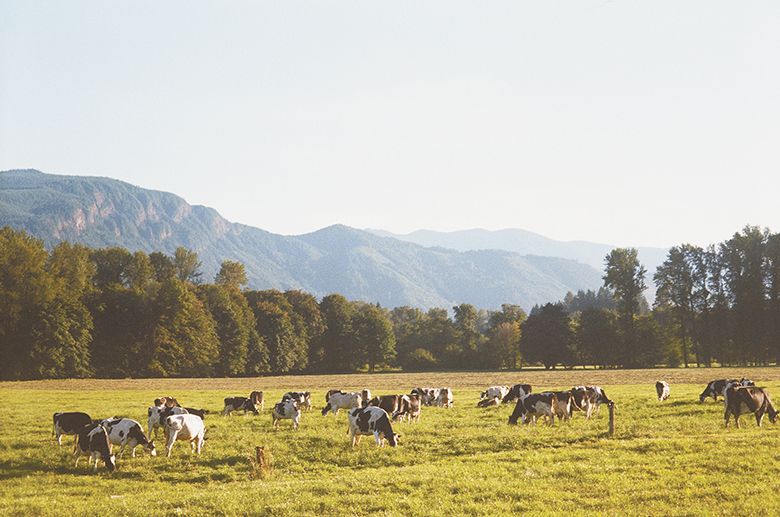Bovine Emissions
Reduce your carbon footprint by consuming less beef
By MICHELE FRANCISCO, OWP Editor
Did you know if cows were counted as a nation, they would represent the world’s third-largest greenhouse gas emitter? According to numerous studies, this “cow nation” would rank below China and the United States but leapfrog above the combined European Union countries, currently holding third position. Shocking, right?
The U.S. Environmental Protection Agency, or EPA, reports that bovine burps and flatulence, combined with their manure, generated an estimated 278 million metric tons of carbon dioxide equivalent in 2021.
Why am I sharing this information? Because it’s Earth month. One of the easiest ways to reduce your carbon footprint– while increasing both your health and that of the planet– is to eat less meat. Fewer burgers consumed means fewer cows raised to become burgers. This change is such a simple one, and one reason for “meatless Mondays” growth in popularity.
To produce 100 grams of cow meat protein, an average of nearly 50 kg of carbon dioxide equivalent is emitted. By comparison, nuts generate a mere 0.25 kg. A 2019 study published in Nature estimates a one percent greenhouse gas emission reduction if every American merely consumed 25 percent less beef.
Sadly, the last few years have seen too many dangerous weather events. Oregon has suffered from an intensely hot heat dome, an increase in deadly wildfires, erratic snow and ice storms and late spring frosts. Our changing climate affects everyone and everything. In comparison, skipping meat your next meal seems a small price to pay toward making a positive impact on our environment.
Search #meatlessmonday on social media and visit www.mondaycampaigns.org/meatless-monday for recipes, inspiration and resources.
Michele Francisco spent her childhood reading and writing, eventually graduating from UCLA with an English degree. She attended graphic design school and began a career in design and marketing. After moving to Oregon in 2010, Michele studied wine at Chemeketa Community College and began Winerabble, a Northwest-focused wine blog. She has been a cheerleader for Oregon wine since her arrival.











